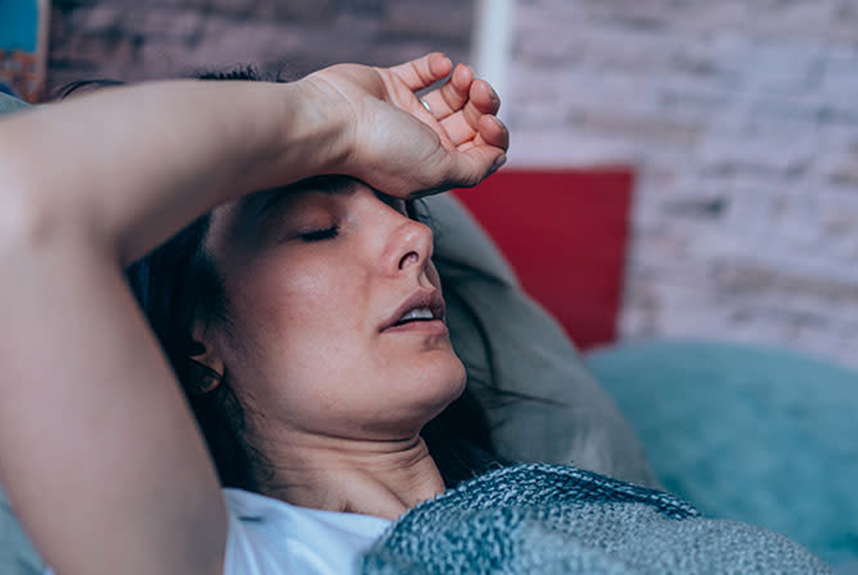When you exercise, you sweat, just as you do when it is hot or you eat spicy food. This is quite normal and even helpful. But what happens if you sweat during sleep? In this case, there may be more to it than that. There are several causes of night sweats. Here are six of the most important.
Sweating is a healthy and vital process for the body. Our sweat is like our personal air conditioner. As our body temperature rises, we cannot release enough heat through our skin. As a result, we sweat. This can occur during exercise, sun exposure, and sleep. Here are the main causes.
1) Taking Certain Medications
Have you never read the package inserts of your medications? You should. If you always wake up drenched in sweat, your medications may be the cause. Some medications contain substances that cause excessive night sweats. This applies to pills, antidepressants, and even various painkillers. Therefore, it is necessary to read the package leaflet carefully. If you suspect a particular medication is the cause, consult your doctor about alternative medications that do not have this side effect. Of course, you should never stop taking the medication.
2) Stress or Anxiety
If you are highly stressed or anxious during the day, this may continue during sleep. Anxiety and stress cause the heart to beat faster and blood vessels to constrict. This causes the body temperature to rise. The thermometer senses this and sweats, bringing the body temperature back to normal. Dreaming and waking up with nightmares are common. Avoid stressful situations as much as possible and relax before bed.
3) Menopause
Sweating at night can be a symptom of various hormones, but it could also be menopause. Many women experience night sweats at this time of year. This is because the hypothalamus, the brain’s temperature center, is sensitive to changes in hormone levels. The sudden drop in the female hormone estrogen causes the thermostat in the body to change. This thermostat reacts as if the body temperature is too high and does everything in its power to release the heat. Blood vessels dilate, and blood flows into the skin. This causes a lot of sweating, from a few drops of sweat to a sticky T-shirt. By eating as pure a diet as possible, wearing natural clothing, and avoiding stress, the risk of night sweats can be slightly reduced.

4) You Have Had a Few Drinks
Even if you have had a few glasses of wine or beer and gone to bed, your body is still in full activity. You will likely sweat. Your stomach, liver, and intestines are busy breaking down alcohol, so your body gets hot and sweaty during sleep.
5) Your Sleeping Habits Are Not Correct
Night sweats can be caused by the temperature you sleep in, your mattress, and the pajamas you wear. Too many blankets, poorly ventilated pajamas, and closed windows also cause sweating. Body temperature is strongly influenced by the substances your skin comes in contact with. Open windows, wear cotton or linen cloths and be careful not to overcover with blankets.
6) Low Blood Pressure
Low blood pressure can also cause night sweats. This phenomenon is more common in people with diabetes. If you have diabetes, your blood glucose level may drop or rise too low. When blood glucose levels drop too low, it is called hypoglycemia. By not skipping meals and eating regularly and healthily, blood sugar levels can be kept as stable as possible. This also reduces the likelihood of wet mattresses.
Let us know if these few tips have helped you in the comments below!


